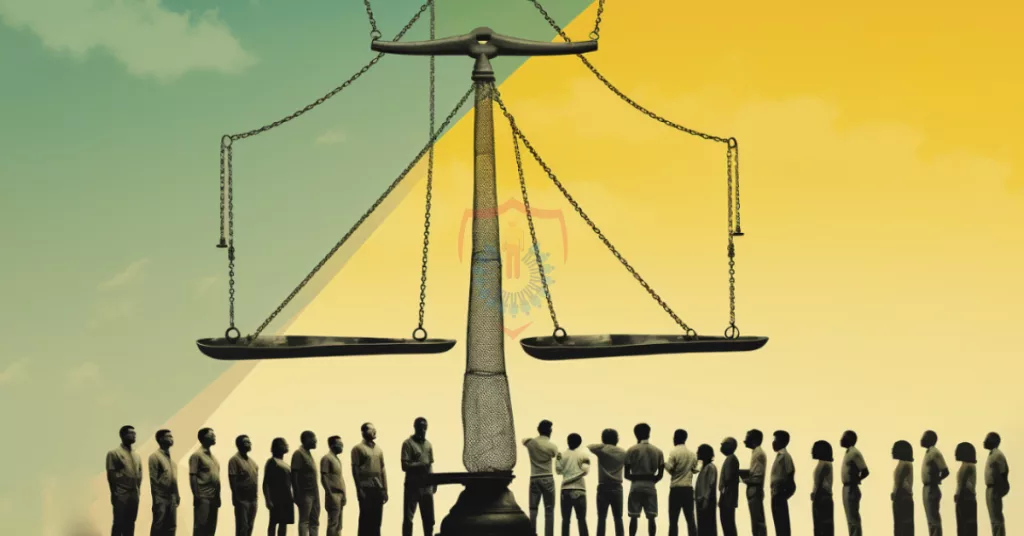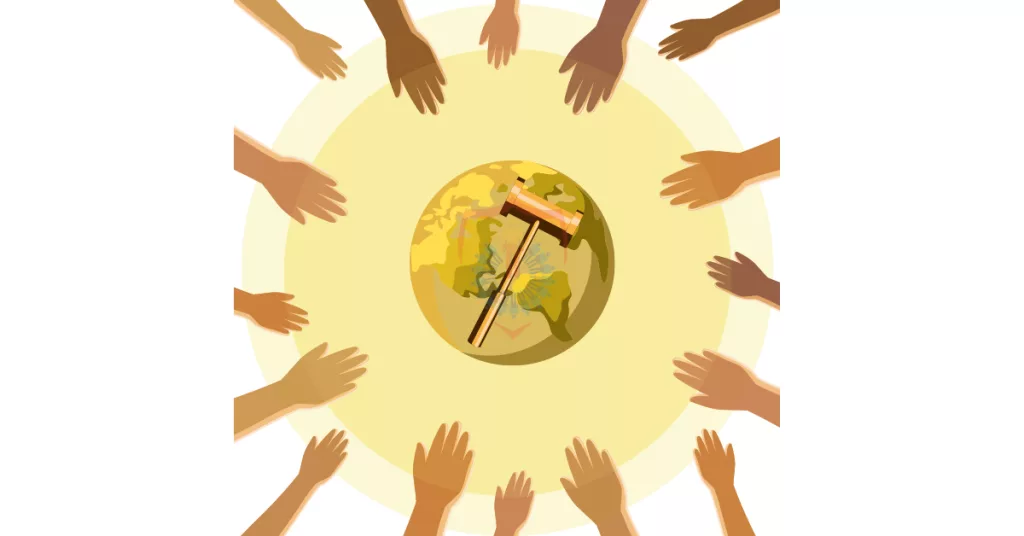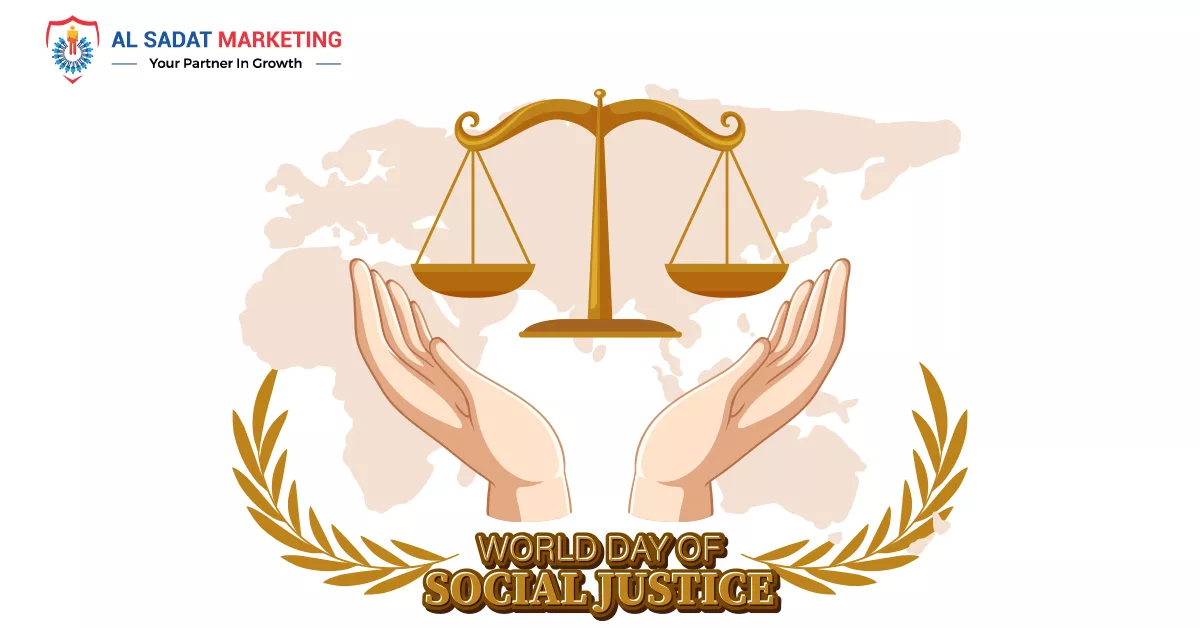Introduction
United Nations General Assembly recognizes the World Day of Social Justice every year on February 20. The purpose of the day is to raise awareness. Also, this day promotes the value of social justice for all.
Today’s emerging nations face many crucial issues. Some of these include:
- Economic downturns
- Widespread joblessness
- Inequality
- Shortage of resources.
All these issues are preventing them from fully participating in the worldwide economy. We all want to create a socially equal community. For this purpose, we observe the World Day of Social Justice every year. This day serves to promote social justice. Also, this day unites millions of people worldwide in the fight against:
- Impoverishment
- Sexism
- Racial Prejudice
- Low Literacy Rates
- Prejudice Based on Religion
Read More: Recognizing World Day of Social Justice
History of The World Day of Social Justice
In 1995, the World Summit for Social Development was held in the Copenhagen, Denmark. Over a hundred politicians participated in it. They promised to address social justice concerns. Also, they ensure the building of secure and just communities.
Therefore, the United Nations is committed to promoting social development. In the event organized in 2005, authorities examined the Copenhagen Declaration and Social Development. In addition, the U.N. acknowledged that we should work together to establish and maintain stability and safety. And we can achieve this only with social improvement and social justice.

This day provides a forum for bringing social justice concerns to the attention of people worldwide. On this day, people get information about the various injustices occurring in the world. As a result, they can better develop solutions. Ultimately, it will lead to the establishment of a just society.
Everyone has a right to live their life to their full potential. Hence, we must prioritize equality to ensure happy and more balanced communities.
Social fairness is the key to advancement in society. In 2007, the United Nations General Assembly established the World Day of Social Justice.
Read More: International Mother Language Day
In 2008, the International Labour Organization, an institution of the U.N., issued the ILO statement on Social Justice for Fair Globalization. At the same time, the U.N.’s pledge to promote social justice was reinforced.
The World Day of Social Justice was first officially declared in 2009.
Importance of the World Day of Social Justice
The United Nations declared February 20, 2009, the official World Day of Social Justice. The U.N. General Assembly has authorized the resolution honoring that day. The event considers social justice crucial to global growth, safety, and a peaceful world.
In its decision, the U.N. recognized the need for more international economic awareness efforts. Gender equality and the advancement of social well-being are essential priorities.

Fairness is an essential component of social justice. It includes:
- Necessities
- Opportunities
- Riches, and all other social structures.
Upholding justice for all people is at the heart of social justice. Human rights are closely related to this matter.
Firstly, the International Labour Organization reports that two million people live in “vulnerable and conflict-affected locations.” Violent conflict and its aftermath have significantly affected social justice projects. Secondly, fewer than 40% of individuals can pursue a profession that could increase their earnings.
Social justice is a fundamental tenet of both harmonious and profitable coexistence inside and between states. Also, this is something we cannot ignore. However, upholding the ideals of social justice is essential to removing the hurdles people generally encounter due to their:
- Gender
- Age
- Race
- Ethnicity
- Religion
- Culture,
- Handicap, among other factors.
Read More: International Education Day | Education Day 2024
Purpose of the World Day of Social Justice

we honour the World Day of Social Justice on February 20 to remember and promote the fight against
- poverty
- marginalization
- Joblessness.
The United Nations General Assembly acknowledges that progress in society and social justice are essential. To achieve and preserve stability and safety within and between countries.
Also, the presence of either peace, safety, or respect for all fundamental liberties and rights of humanity is necessary to achieve these goals.
There are some of the ideas that are put up to achieve social justice. It is advocated to take a combined strategy to all of the following areas:
- Enhancing comprehensive and efficient work management
- Guaranteeing career possibilities and perpetual education
- Reorganizing systems for a more equitable labor market results
- Prolonging social safeguards throughout peoples’ lifespans
The idea of forming a broad Worldwide Alliance for Social Justice is gaining traction. The suggested alliance would support coordinated initiatives.
So, that is aimed at advancing social justice goals and global collaboration. It might showcase significant projects that have effectively promoted social justice throughout the world.
The Principles of Social Justice
These days, we can use four guiding concepts to describe and pursue social justice.
- Human rights
Human rights and social justice are interdependent, even though they have different theoretical frameworks. They share many goals, including advancing equality, doing away with discrimination, and enhancing public accountability.
Social justice is often associated primarily with social and economic freedoms, even though it ought to encompass all human rights.
Prioritizing human rights offers various benefits while promoting social justice.
- Participation
The second social justice tenet is cooperation. This suggests that everyone ought to be able to take part in choices that have an influence on their life. In numerous cultures, only certain groups are able to fully participate because of barriers related to academic achievement and status.
Silences the voices of citizens, exclusion is based on:
- Race
- Gender
- sexual identity
To enable individuals to participate in various issues, we need to create accessible assets.
In addition, to provide an opportunity for presenters from marginalized communities, we must actively request their opinions.
Access
Goods and facilities are available to everybody in an equitable community, not just a chosen few. In most places, access is not uniform.
Geographical location, sexual orientation, and economic standing limit individuals’ choices for obtaining facilities like excellent education and medical care. Excellent educational institutions might be expensive; therefore, only families with specific means can send their kids there.
This also applies to health care. People who possess sufficient medical insurance or who work in particular fields often have the benefit of insurance for mental wellness therapy, hospitalizations, gynecological care, and other treatments.
Equity
The fourth principle of social justice is equity. What sets this apart from equality? Equality is the ultimate objective, and equity is the means by which societies reach that goal.
Injustice-ridden systems will always contain marginalized societies. These are people who need better support and funding than the affluent.
Both have the same finish line, even if they begin at different places. It is imperative to recognize that attaining fairness is contingent upon fulfilling the distinct needs of a minority community.
Inequality has no standard approach or one-pager.
Events on the World Day of Social Justice
On February 20, from 1:30 to 2:30 PM (EST), UNHQ, Room TBC. Prominent personalities from the fields of education, government, and the workplace convene with the Director-General of the International Labour Organization (ILO) to deliberate on ways to promote social justice globally.
(UN DESA), (UNCTAD), permanent missions of the Kyrgyz Republic to the U.N., the International Telecommunication Union (ITU), and (ILO) will cooperate to host the conference.

Panel Discussion: “Building Alliances, Bridging Gaps: Global Coalition for Social Justice” The 2024 commemorative event will emphasize the critical role of international association and unity in promoting social justice within the context of the multilateral system.
It will do this in favor of the Worldwide Coalition for Social Justice, a revolutionary effort dedicated to accelerating partnership efforts to promptly solve social justice deficiencies and boost the execution of the 2030 Agenda for a Sustainable Development Goal and the Decent Work Agenda.
Furthermore, this year will be an opportune moment to underscore the need for social justice at significant multilateral U.N. anniversaries.
Conclusion
The World Day of Social Justice is an important event that attempts to raise the public’s understanding of social injustice and advance social justice for everybody. We need to take additional measures to address global social justice issues, such as inequality and financial hardship.
A society that is socially seamless and where everybody can realize their maximum abilities can only be achieved by maintaining the values of social justice.
We Should give top priority to Human rights, participation, equity, and access so that we can work for an even and just world. The memorial activities on World Day of Social Justice offer a fantastic chance to gather well-known individuals from many professions to talk about how to advance social justice internationally and form coalitions to close imbalances.
FAQs
Q. Why do we observe the World Day of Social Justice?
Every year, the World Day of Social Justice serves as a reminder of the need to create the societies that are more just and equal. This year, the International Labour Organization (ILO) will commemorate the occasion with six activities that will take place in significant global cities.
Q. What subjects fall under social justice?
Topics Covered:
- Income and Class
- Race
- Rights of People with Disabilities
- rights of immigrants
- Participation in Civic Life
Q. When do we celebrate the World Day of Social Justice?
We celebrate the World Day of Social Justice on February 20.
For more news, visit the Al Sadat Marketing Website.







